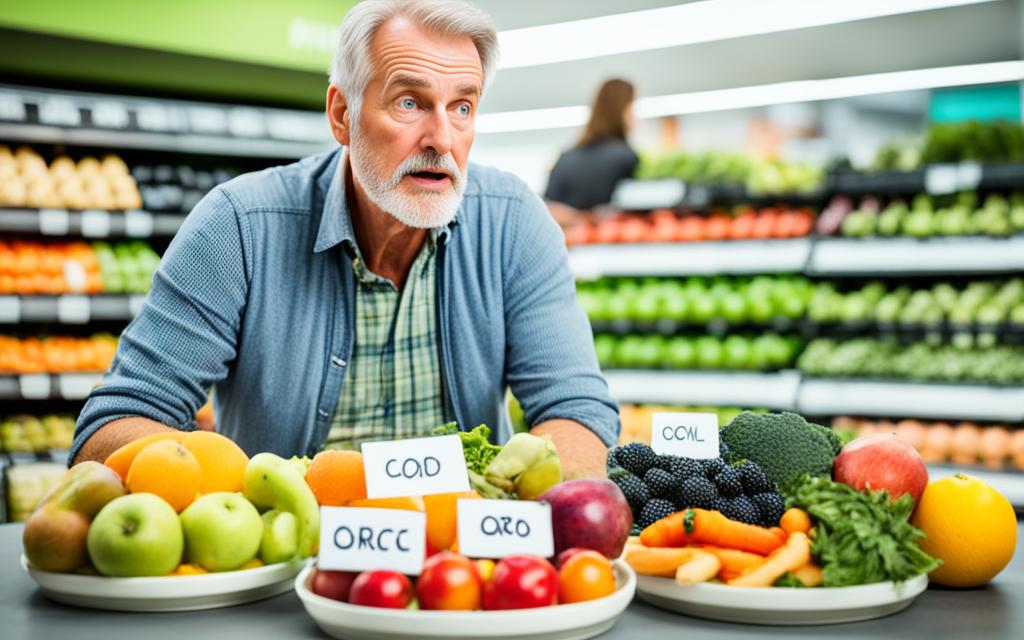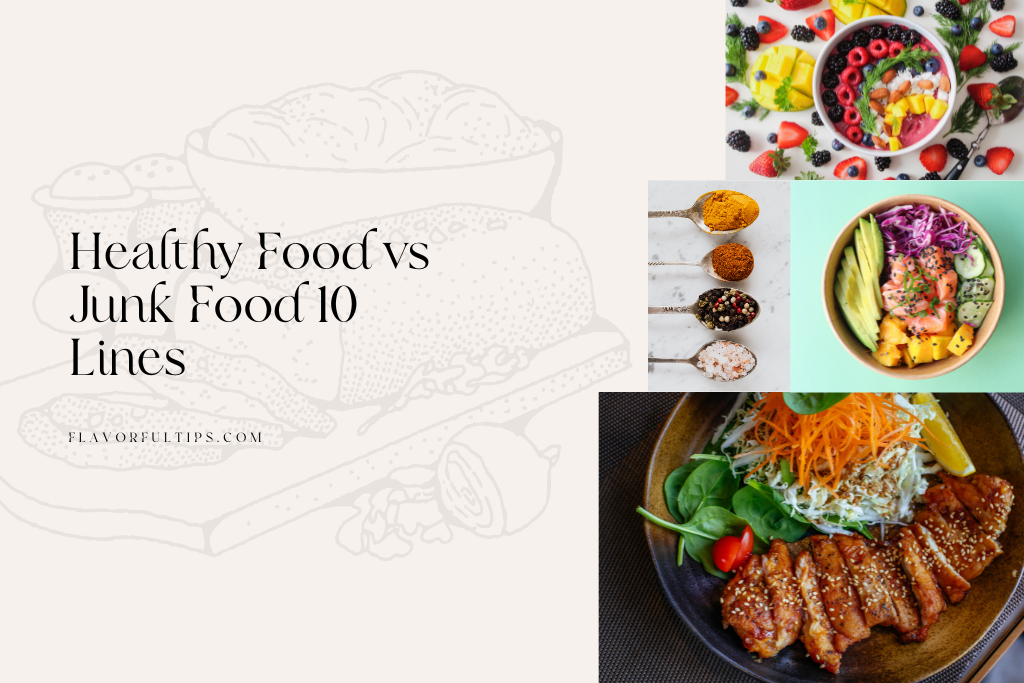Organic food has become a popular choice for many consumers, but is it necessary to exclusively consume organic products? This article will delve into the debate surrounding organic food and provide an overview of the pros and cons of eating organic.
There are differing viewpoints when it comes to the necessity of eating only organic food. Some argue that organic food is worth it due to its potential health benefits and reduced exposure to pesticides and antibiotics. Others question the higher cost of organic products and the limited accessibility for some individuals.
Before we can assess whether we should eat only organic food, it’s important to understand the differences between organic and non-organic food. Organic food is produced using farming methods that avoid the use of synthetic pesticides and fertilizers, while non-organic food may be produced using conventional farming practices that do involve the use of such chemicals.
In terms of health benefits, organic food may contain higher levels of certain nutrients and antioxidants. Additionally, choosing organic can reduce exposure to potentially harmful substances found in non-organic food. However, it’s important to note that there is ongoing debate and scientific research in this area.
Key Takeaways:
- There is a debate surrounding the necessity of eating only organic food.
- Organic food is produced using farming methods that avoid synthetic pesticides and fertilizers.
- It is believed that organic food may have health benefits and reduce exposure to harmful substances.
- The cost and accessibility of organic food are factors to consider when deciding whether to eat only organic.
- Scientific research on the health benefits of organic food is ongoing.
Understanding Organic vs Non-Organic Food
In this section, we will delve into the differences between organic and non-organic food. It is important to understand the distinctions in farming methods and the impact they have on our health and the environment.
Farming Methods: Organic vs Conventional
Organic farming focuses on sustainable practices that prioritize soil health and biodiversity. It avoids the use of synthetic pesticides, herbicides, and genetically modified organisms (GMOs). Instead, organic farmers rely on natural methods and substances to control pests and weeds.
Conventional farming, on the other hand, employs the use of synthetic pesticides and fertilizers to maximize crop production. These methods often involve the use of genetically modified seeds and practices that may have unintended consequences.
Regulatory Standards for Organic Farming
Organic farming is regulated by strict standards set by various certification bodies. These standards ensure that organic farmers adhere to specific guidelines and avoid the use of artificial substances. For example, the United States Department of Agriculture (USDA) enforces the National Organic Program (NOP) standards, which determine the organic certification requirements for food and agricultural products.
These regulatory standards provide consumers with confidence that the organic food they purchase meets specified criteria for production and labeling. It enables them to make informed decisions about the food they consume.
Impact on Health and the Environment
The choice between organic and non-organic food can have implications for both our health and the environment. Organic farming practices reduce the exposure to synthetic pesticides, which can potentially have adverse effects on human health. Additionally, organic farming promotes soil fertility, protects water quality, and supports biodiversity, contributing to a healthier ecosystem.
Meanwhile, conventional farming methods may contribute to environmental pollution and soil degradation. The use of synthetic pesticides and fertilizers can contaminate waterways, harm non-target organisms, and lead to the loss of beneficial soil microorganisms.
It is worth noting that while organic farming practices prioritize sustainable methods, organic food production may face challenges related to yield and cost-effectiveness. However, the growing demand for organic products indicates a changing landscape in the food industry.
| Organic Food | Non-Organic Food |
|---|---|
| Produced using sustainable farming methods | Chemical-intensive farming methods |
| Avoids synthetic pesticides, GMOs, and artificial additives | May utilize synthetic pesticides and genetically modified seeds |
| Promotes soil health, biodiversity, and water conservation | Potential for environmental pollution and soil degradation |
| May have higher nutrient content | Lower nutrient content due to intensive farming practices |
| Less exposure to pesticide residues and antibiotics | Possible exposure to pesticide residues and antibiotics |
The Benefits of Eating Organic Food
Eating organic food offers a multitude of benefits for both our health and the environment. Organic food is produced using organic farming practices, which involve the use of natural fertilizers, crop rotation, and organic pest control methods. Here are some key reasons why choosing organic food can be advantageous:
1. Health Benefits of Organic Food
Organic food is free from synthetic pesticides, herbicides, and genetically modified organisms (GMOs), which are commonly used in conventional farming. By consuming organic food, you can significantly reduce your exposure to harmful chemicals and toxins that may have adverse effects on your health. Additionally, studies have shown that organic food may have higher nutrient content, such as vitamins, minerals, and antioxidants, which contribute to overall well-being.
2. Reasons to Choose Organic Food
Many individuals opt for organic food due to various reasons beyond personal health. One of the significant factors is animal welfare. Organic farming practices prioritize the well-being of animals, ensuring they have access to pasture and are raised in humane conditions. By choosing organic products, you support ethical treatment of animals in the agricultural industry.
Another reason to choose organic food is to support sustainable farming practices. Organic farming promotes soil health, conserves water resources, and works towards minimizing pollution and reducing greenhouse gas emissions. By choosing organic, you contribute to the preservation of the environment and promote ecological sustainability.
Furthermore, people often choose organic food as a means of supporting local farmers and communities. Purchasing organic products from local farms helps to strengthen the local economy, create job opportunities, and foster a sense of community.
Overall, the benefits of eating organic food extend beyond personal health advantages. It encompasses considerations for animal welfare, environmental sustainability, and support for local communities. By making conscious choices and opting for organic food, you play an active role in creating a healthier and more sustainable future.
Debunking Organic Food Myths
There are numerous myths and misconceptions surrounding organic food that can often lead to confusion and misinformation. In this section, we will address these myths and debunk them with evidence-based information, providing readers with a clearer understanding of the truth behind organic food.
Myth #1: Organic food is always safer than conventional food
Contrary to popular belief, organic food is not inherently safer than conventional food. While organic farming prohibits the use of synthetic pesticides and genetically modified organisms (GMOs), it does not guarantee absolute safety. Both organic and conventional foods undergo rigorous safety regulations to ensure they meet strict quality standards.
Myth #2: Organic food is more nutritious
Although some studies suggest that organic food may contain slightly higher nutrient levels, the differences are generally insignificant and vary depending on the specific crop. The nutritional content of any food is influenced by multiple factors, including soil quality, ripeness at harvest, and storage conditions.
Myth #3: Organic food is too expensive
There is a common misconception that organic food is significantly more expensive than conventional alternatives. While organic products can have a higher price point in some cases, it is essential to consider long-term health benefits and the potential environmental impact of organic farming practices. Additionally, as demand for organic food continues to grow, prices are gradually becoming more competitive.
Myth #4: Organic farming cannot feed the world
Organic farming practices prioritize sustainability and environmental conservation. Critics argue that organic methods have lower yields compared to conventional farming, making it difficult to meet the growing global demand for food. However, studies have shown that with improved organic farming techniques and investments in research and development, organic agriculture has the potential to contribute to global food security.
Myth #5: Organic food is only for the elite
While it is true that organic food can sometimes be more expensive, it is important to note that organic options are becoming increasingly accessible in mainstream markets. Many grocery stores now offer a wide range of organic products at competitive prices, making organic food more available to a broader consumer base.
To better understand the truth about organic food, let’s take a look at a side-by-side comparison of some common myths:
| Myth | Fact |
|---|---|
| Organic food is always safer than conventional food | Both organic and conventional foods undergo safety regulations |
| Organic food is more nutritious | Nutritional differences between organic and conventional foods are generally insignificant |
| Organic food is too expensive | Organic food prices are gradually becoming more competitive |
| Organic farming cannot feed the world | With improved techniques, organic farming can contribute to global food security |
| Organic food is only for the elite | Organic food options are becoming increasingly accessible |
By debunking these myths, we aim to provide readers with accurate information so they can make informed decisions about their food choices. Organic food offers numerous benefits, but it is essential to separate fact from fiction to make the best decisions for ourselves and the planet.

The Environmental Impact of Organic Food
In today’s world, the choices we make about our food have far-reaching consequences, not only for our health but also for the environment. The production and consumption of food can have a significant impact on natural resources, biodiversity, and climate change. In this section, we will explore the environmental impact of choosing organic food and how it compares to conventional farming methods.
Promoting Soil Health and Biodiversity
One of the key benefits of organic farming is its emphasis on soil health and biodiversity. Organic farmers use natural fertilizers and crop rotation techniques to maintain and improve soil fertility. This helps to preserve soil structure, promote beneficial microorganisms, and reduce the risk of soil erosion. Additionally, organic farming practices prioritize the use of organic matter and compost, which enhance soil water retention and limit nutrient runoff. By nurturing the soil, organic farming contributes to the preservation of ecosystems and the protection of vital biodiversity.
Reducing Pollution and Greenhouse Gas Emissions
Conventional farming methods often rely on synthetic pesticides and fertilizers, which can have adverse effects on the environment. These chemicals can contaminate waterways, harm wildlife, and contribute to air pollution. In contrast, organic farming prohibits the use of synthetic pesticides and promotes natural pest control methods. This reduces the risk of chemical pollution and helps to safeguard our ecosystems.
Besides, organic farming is known to have a lower carbon footprint compared to conventional farming. Organic practices prioritize the use of renewable resources, minimizing the dependence on fossil fuels. This, coupled with the absence of synthetic fertilizers and pesticides, leads to reduced greenhouse gas emissions. The adoption of organic farming methods can, therefore, contribute to mitigating climate change and preserving our planet for future generations.
Evaluating the Trade-Offs: Cost and Accessibility
While organic farming offers significant environmental benefits, it is essential to evaluate whether the advantages justify the potential higher cost or limited accessibility of organic food. The organic certification process and adherence to stringent standards often result in higher production costs, which are passed on to consumers. As a result, organic food can sometimes be more expensive compared to conventionally produced options.
Moreover, organic farming may face challenges in terms of scalability and availability, particularly in regions with limited resources or unfavorable climatic conditions. This can restrict access to organic food for some consumers, limiting their ability to make sustainable choices. Efforts are being made to address these issues and promote organic farming on a larger scale, but it remains an ongoing process.
Is Organic Food Worth it?
The decision to choose organic food ultimately depends on individual preferences, values, and considerations. The environmental benefits of organic farming are clear, but it’s crucial to weigh them against factors such as cost, accessibility, and personal circumstances. By supporting organic food, individuals can contribute to healthier ecosystems, reduced pollution, and a more sustainable food system. However, it’s important to acknowledge that organic food may not be an accessible or affordable option for everyone.
Ultimately, the choice between organic and conventional farming is a personal one. Regardless of the decision made, it’s important for consumers to prioritize sustainable and responsible food choices. By opting for locally sourced, minimally processed, and ethically produced food, we can all play a part in creating a healthier and more environmentally conscious future.
| Environmental Impact Factors | Organic Farming | Conventional Farming |
|---|---|---|
| Soil Health | Promotes soil health through organic matter, crop rotation, and composting | May lead to soil degradation and erosion due to the use of synthetic fertilizers and pesticides |
| Biodiversity | Preserves biodiversity through sustainable farming practices | May harm biodiversity due to chemical pollution and habitat destruction |
| Pollution | Reduces chemical pollution through the prohibition of synthetic pesticides | May contribute to pollution through the use of synthetic pesticides and fertilizers |
| Greenhouse Gas Emissions | Has a lower carbon footprint compared to conventional farming | May contribute to emissions through the use of synthetic inputs and intensive farming practices |
| Cost | May be more expensive due to higher production costs | May be more affordable due to economies of scale |
| Accessibility | May have limited availability in certain regions | Usually widely available in most markets |
Weighing the Pros and Cons of Organic Food
When it comes to choosing the best food for our health and the environment, organic options have gained significant attention. However, before making a final decision, it’s important to weigh the pros and cons of consuming organic food.
The Pros of Organic Food
Organic food offers several potential advantages that make it an appealing choice for many individuals. One of the primary benefits is the reduced exposure to pesticides and antibiotics. Organic farming practices prohibit the use of synthetic pesticides and antibiotics, which can have potential health risks when consumed in large quantities.
Additionally, organic food is often perceived to be more nutritious. Studies suggest that organic produce may contain higher levels of certain nutrients, such as vitamin C, iron, and magnesium, compared to conventionally grown counterparts.
The environmental impact of organic farming is another important consideration. Organic agriculture promotes soil health, biodiversity, and reduces pollution and greenhouse gas emissions compared to conventional farming methods.
The Cons of Organic Food
While there are many benefits associated with organic food, it’s essential to consider the potential drawbacks. One of the main concerns is the higher cost. Organic farming practices are often more labor-intensive and require stricter regulations, which can increase production costs. As a result, organic products tend to be more expensive compared to conventionally produced food.
Another consideration is the limited availability of organic food. Not all regions have the same level of access to organic products, which may make it challenging for some individuals to maintain a completely organic diet.
Pros and Cons of Organic Food
| Pros of Organic Food | Cons of Organic Food |
|---|---|
| Reduced exposure to pesticides and antibiotics | Higher cost compared to conventional food |
| Potentially higher nutrient content | Limited availability in certain regions |
| Environmental benefits |
Ultimately, the decision to consume organic food depends on individual priorities and circumstances. While organic food offers various advantages such as reduced exposure to harmful substances and environmental benefits, higher costs and limited availability may present challenges for some. It’s important to consider personal preferences, health concerns, and the overall impact on the environment when making a decision.
Conclusion
After exploring the debate on whether we should eat only organic food, it is clear that there are several factors to consider. While organic food offers potential health benefits, decreased exposure to harmful substances, and support for sustainable farming practices, it is important to approach the decision with a balanced viewpoint.
Individual preferences, health concerns, and accessibility should all be taken into account when making food choices. While organic food may be worth it for some, others may find it more practical or affordable to incorporate a combination of organic and non-organic options into their diet.
Ultimately, the decision to eat only organic food is a personal one. By staying informed about the pros and cons, individuals can make conscious choices that align with their values and circumstances. Whether choosing organic or non-organic, the key is to prioritize a well-rounded diet that includes a variety of nutrient-rich foods.



